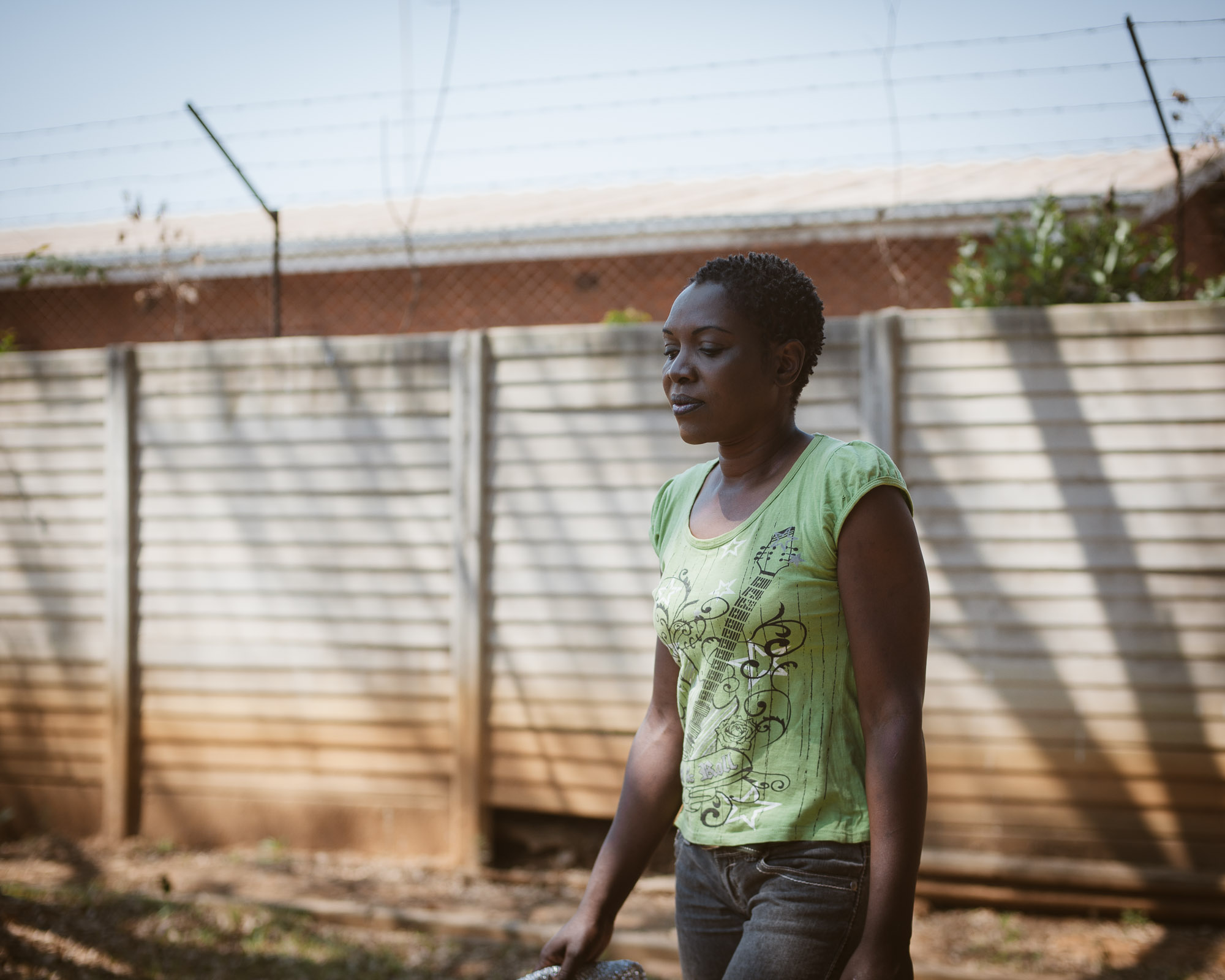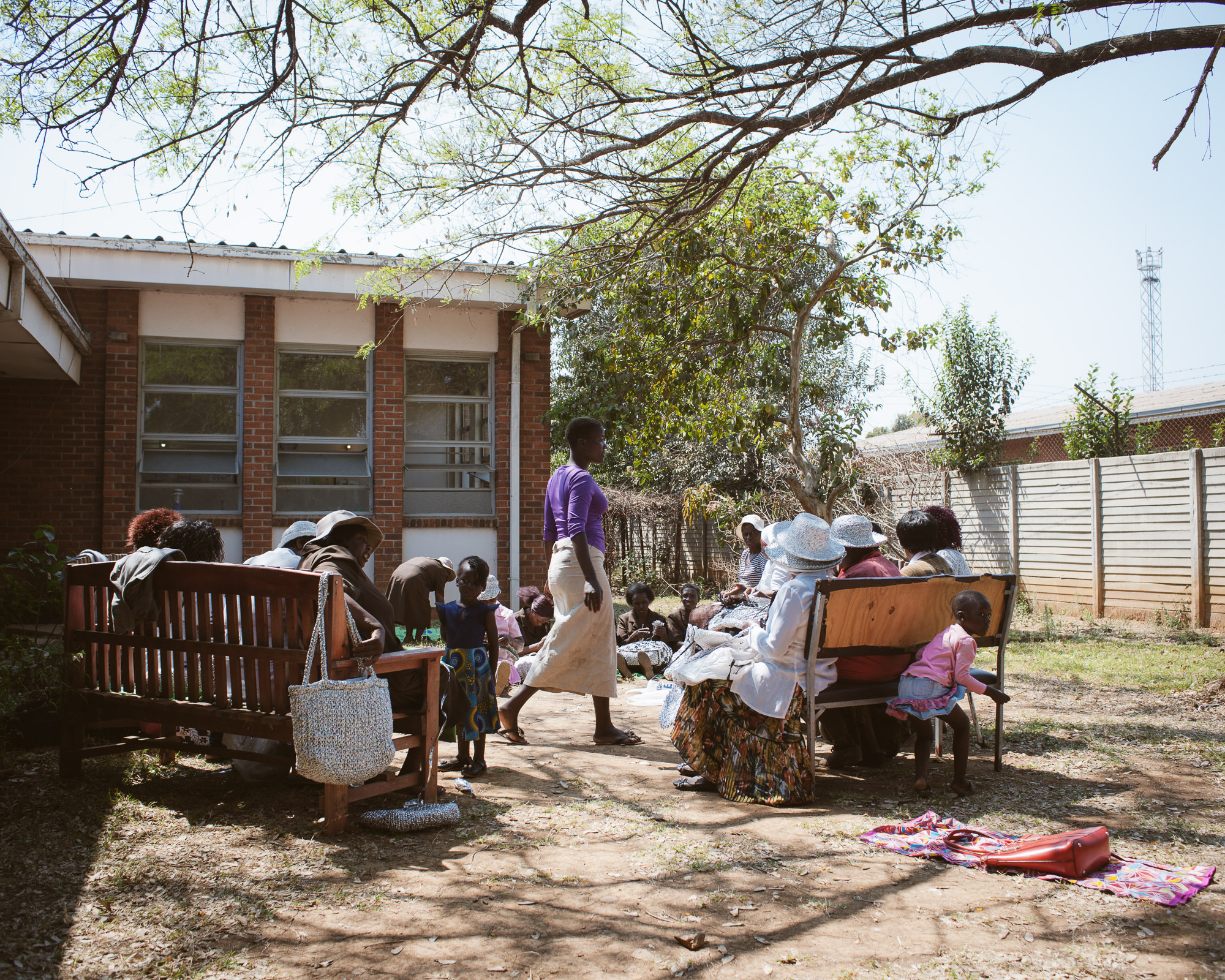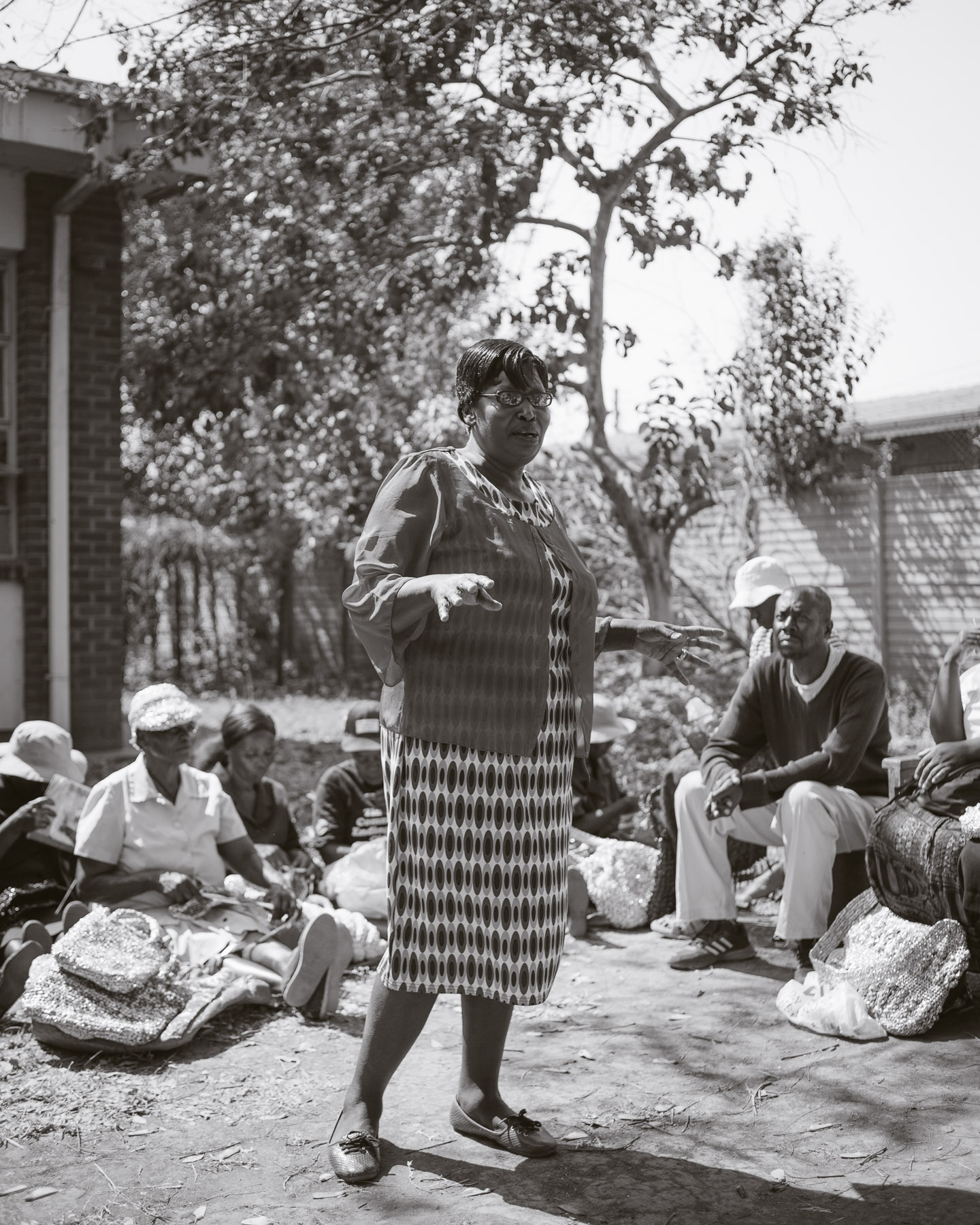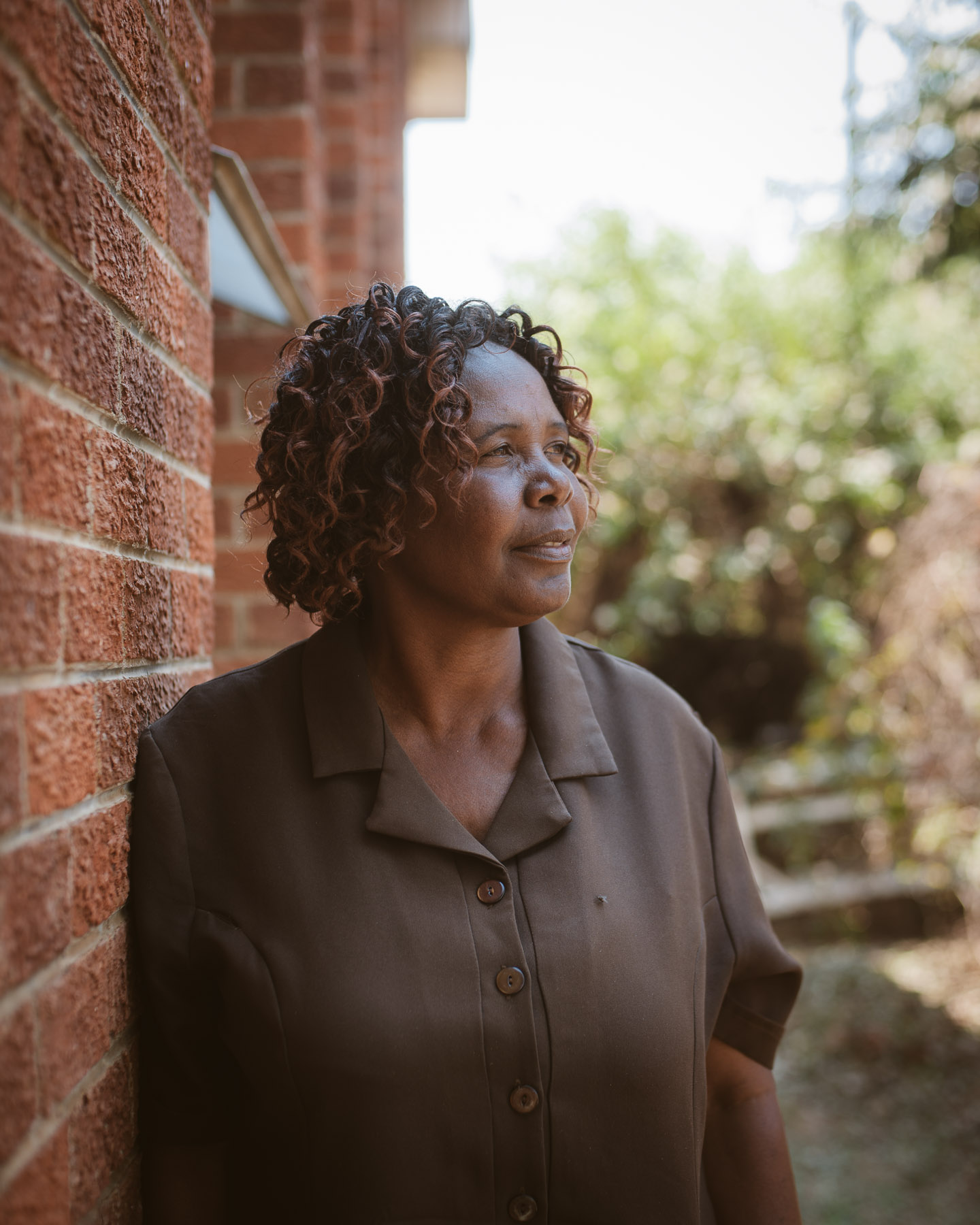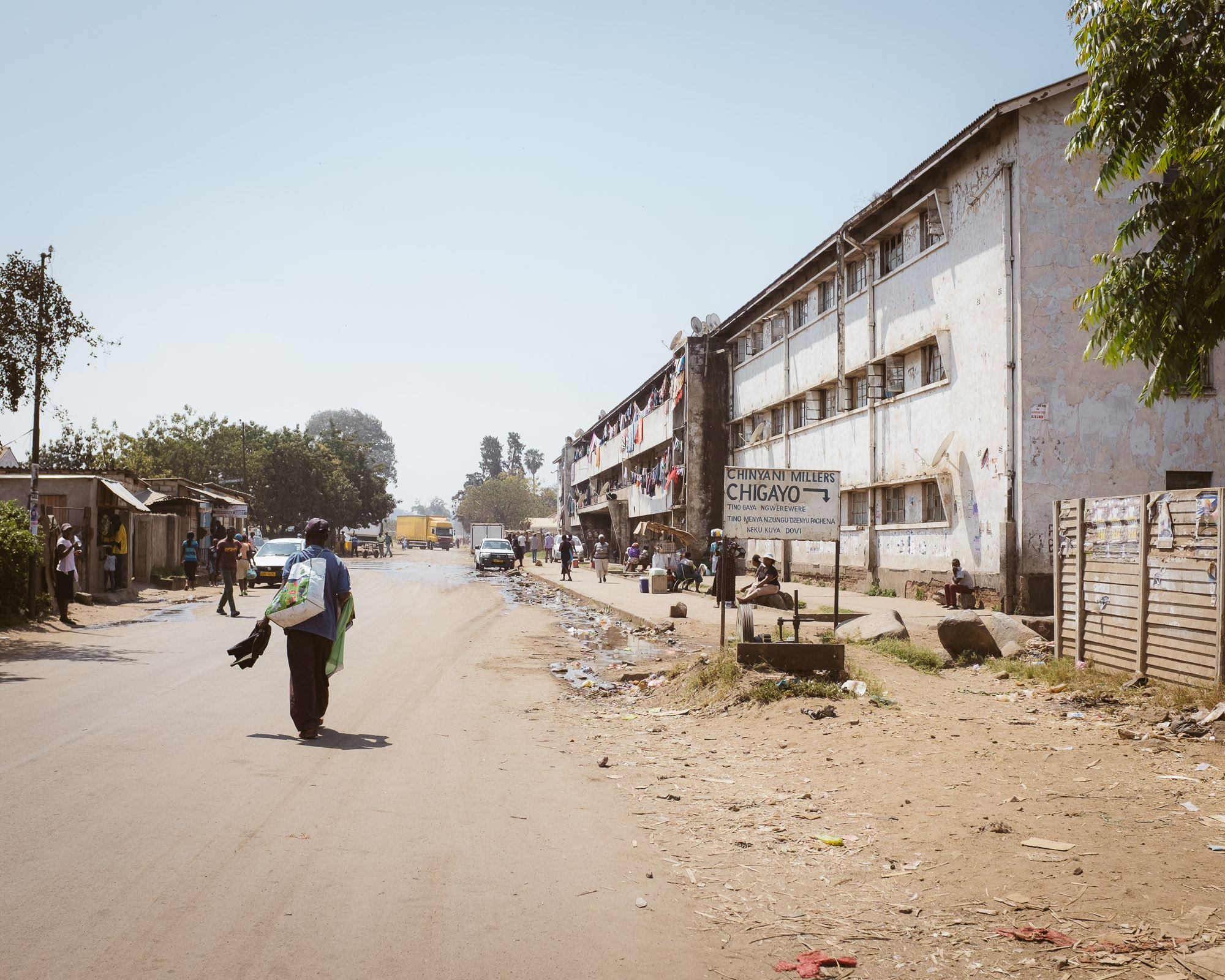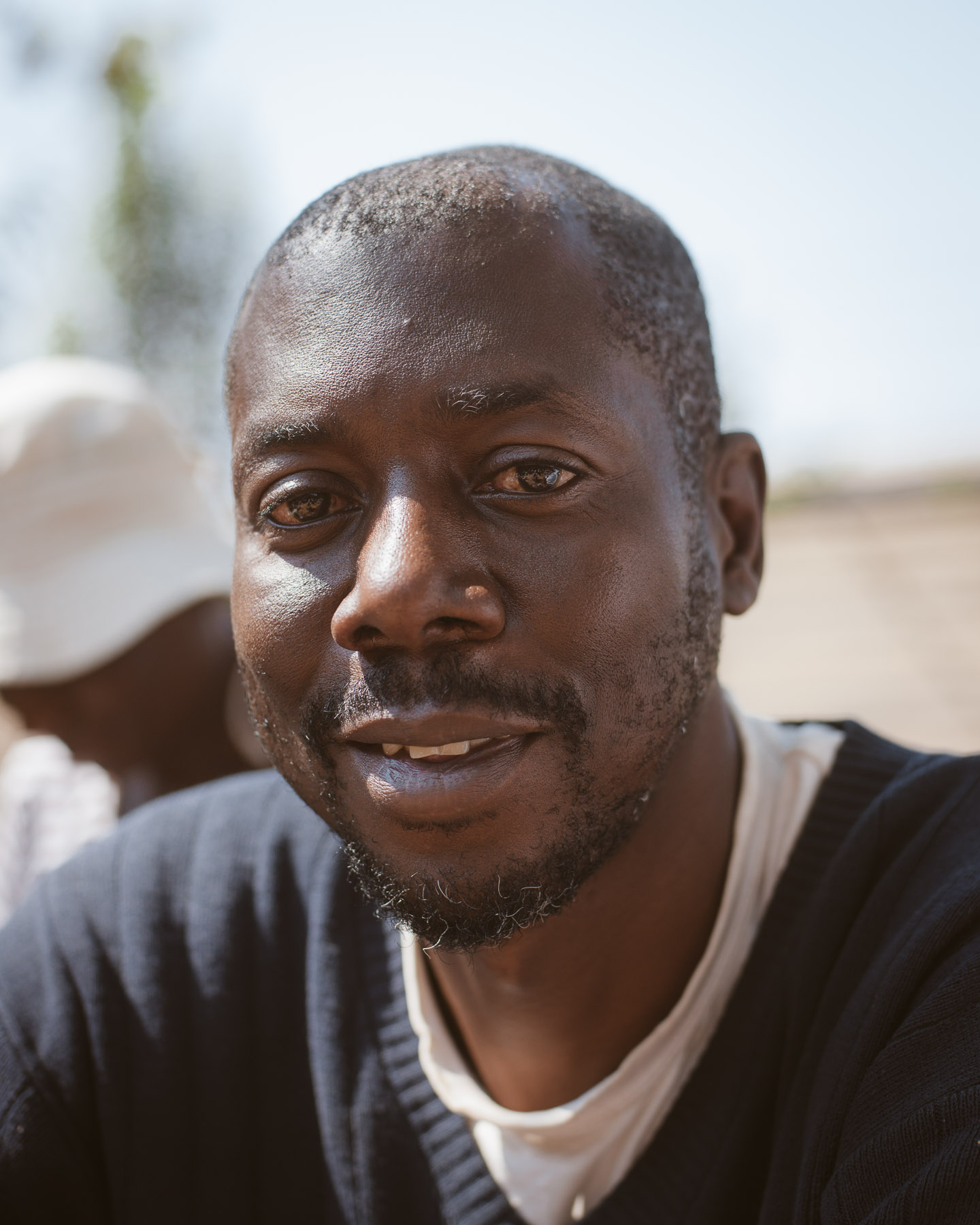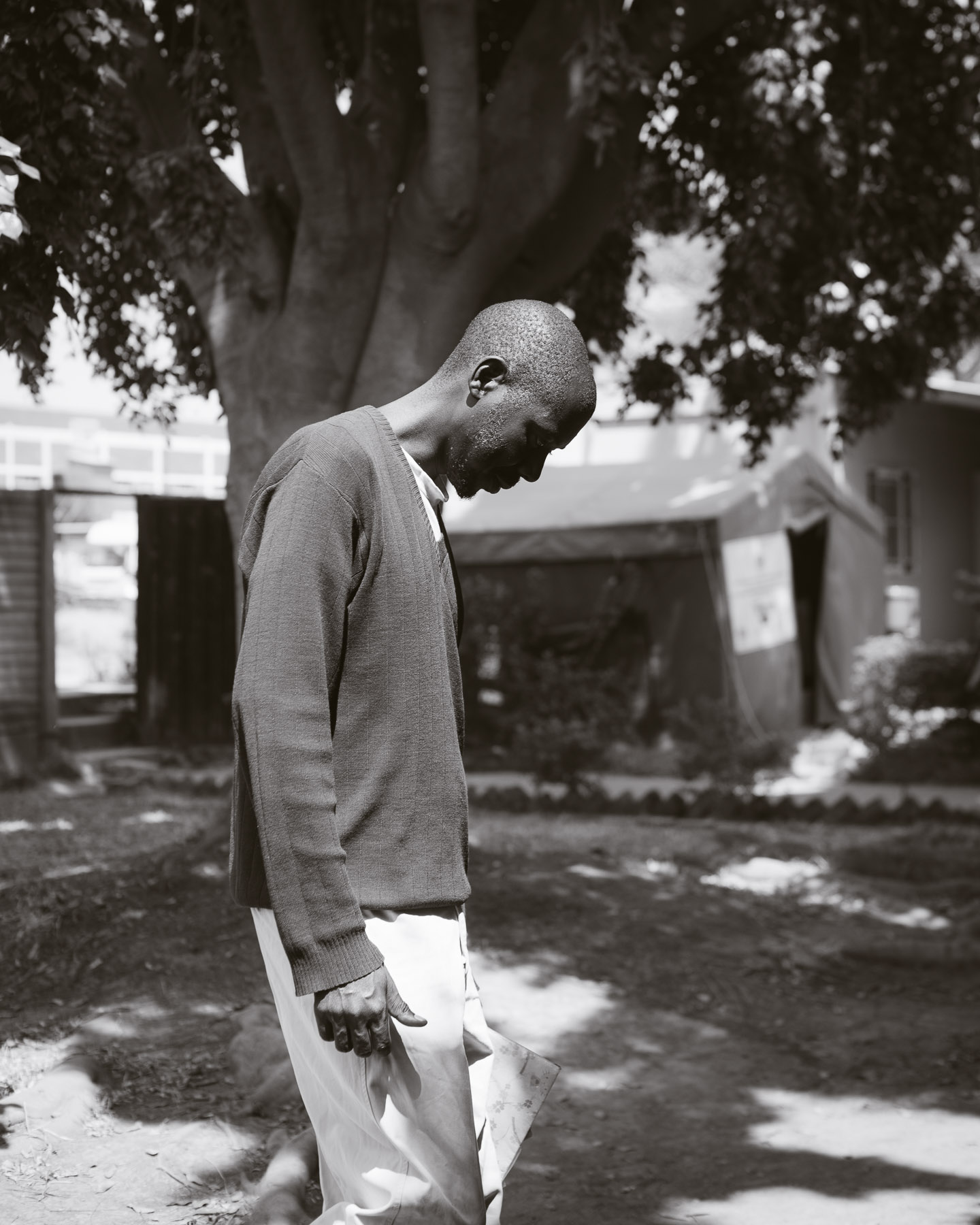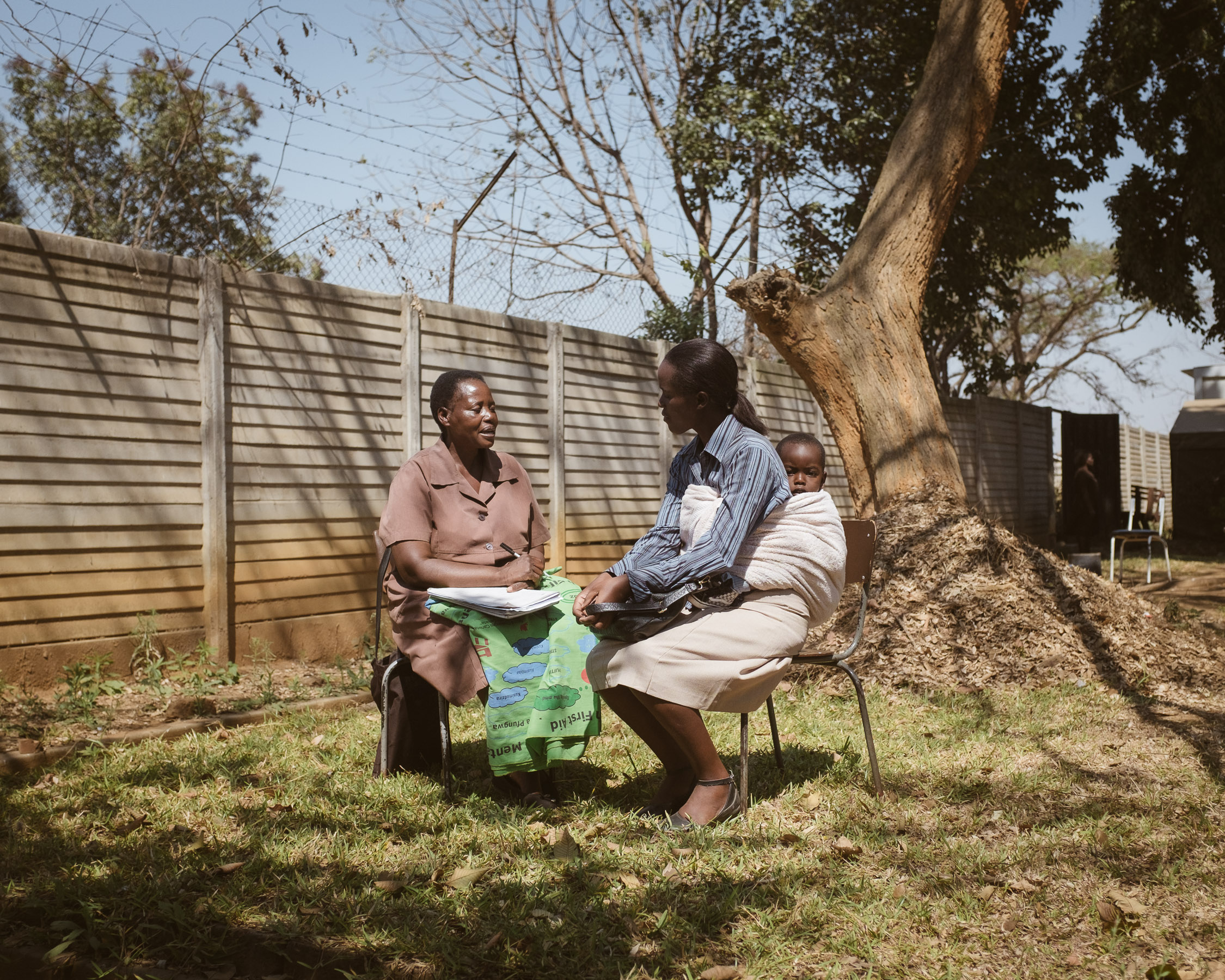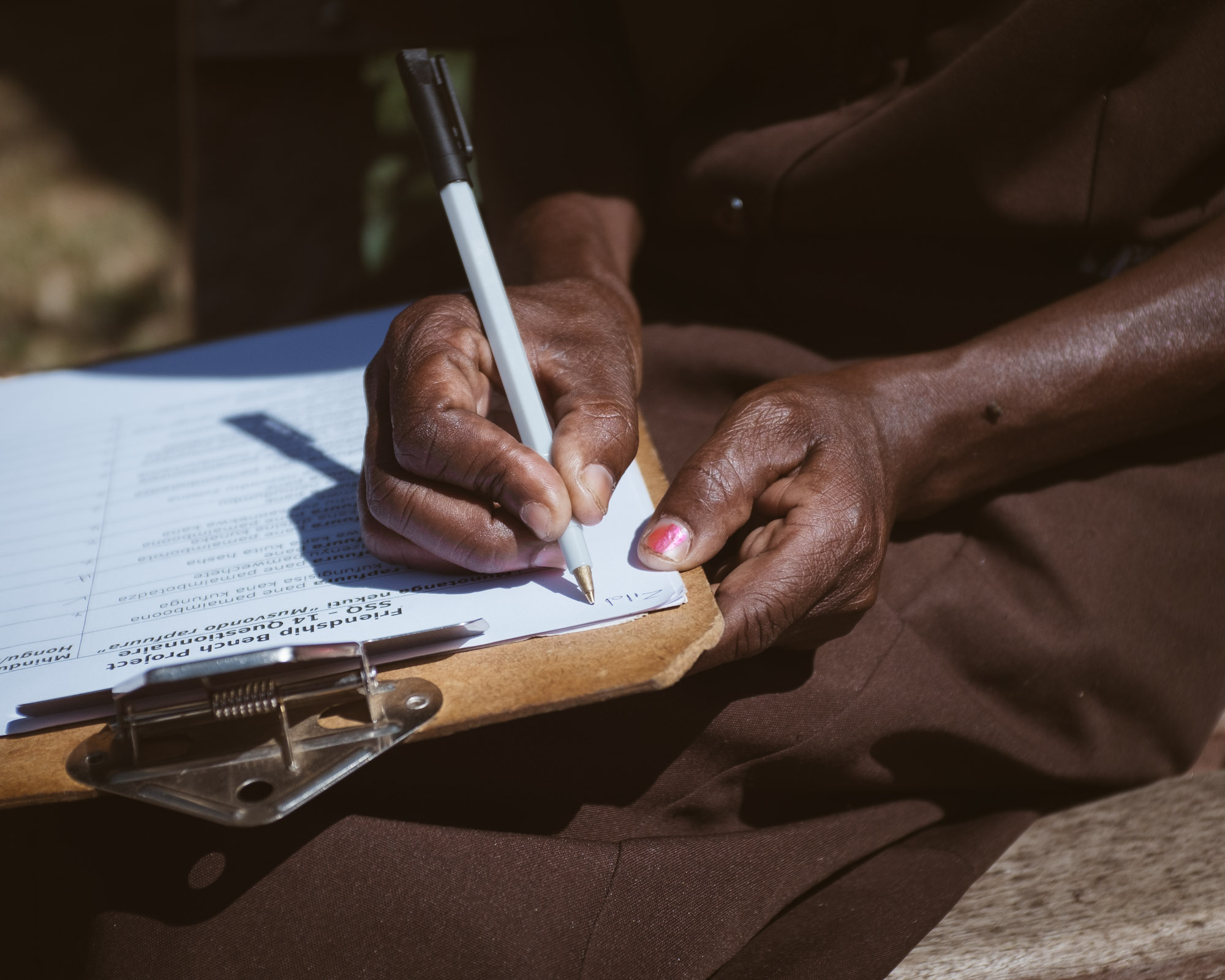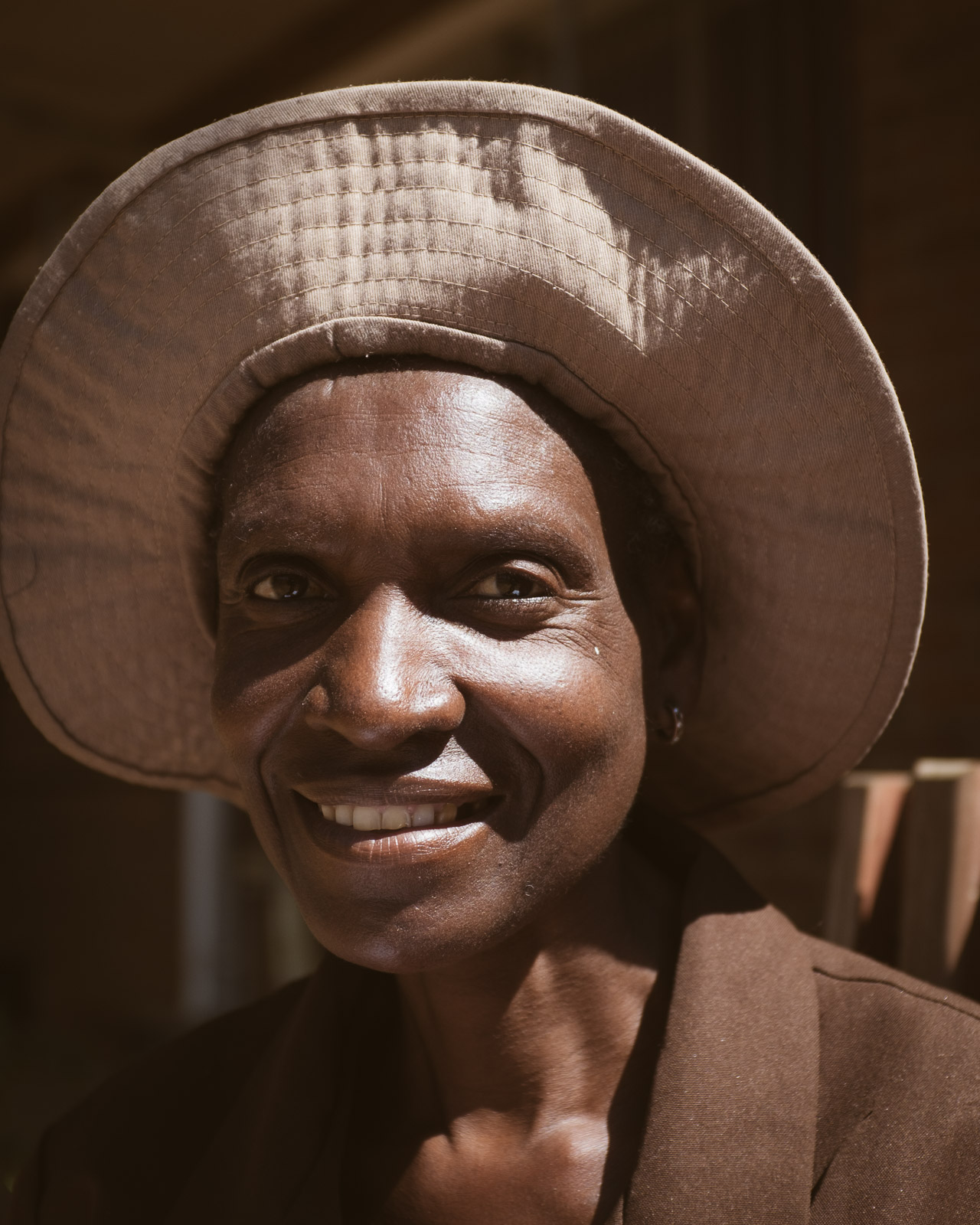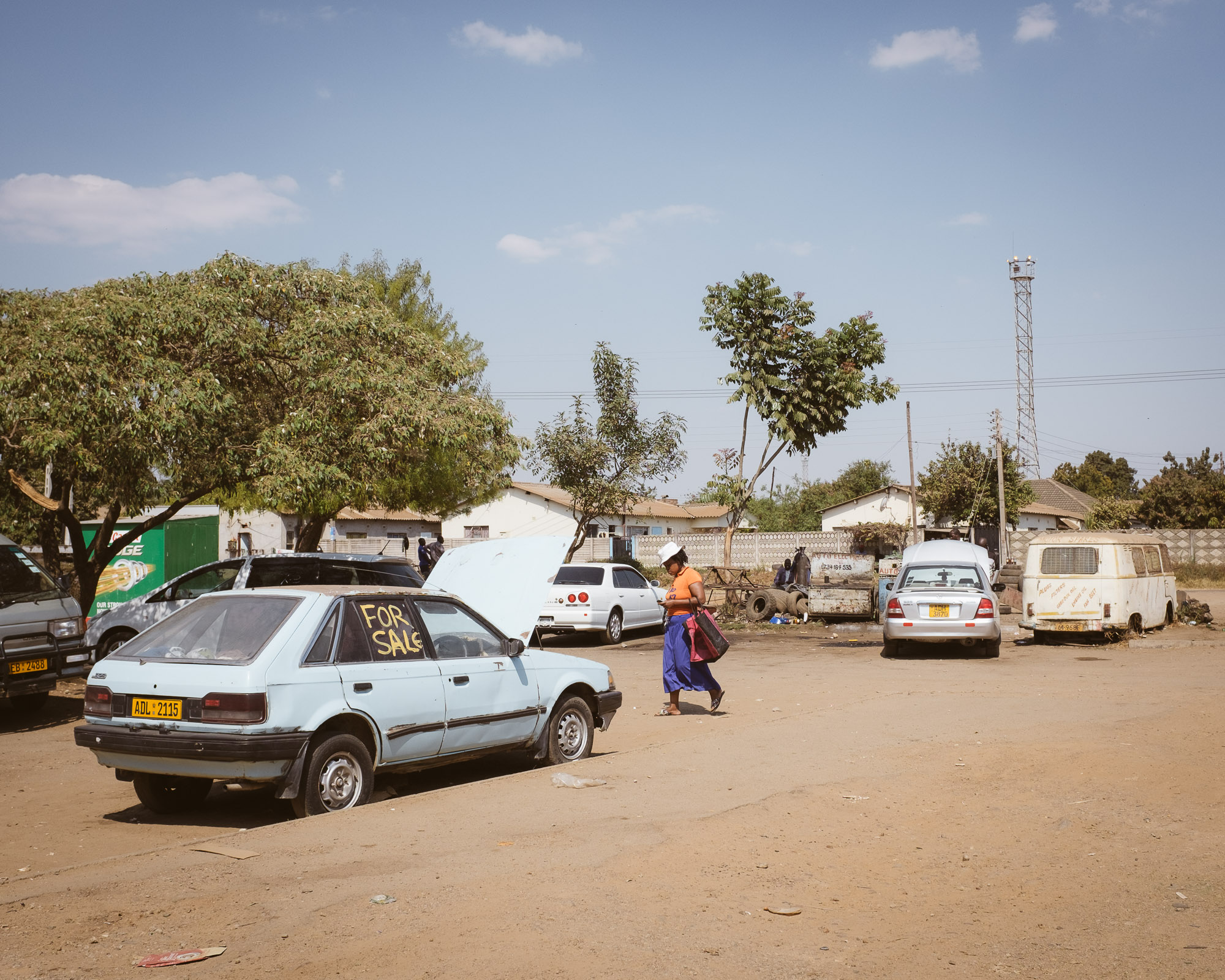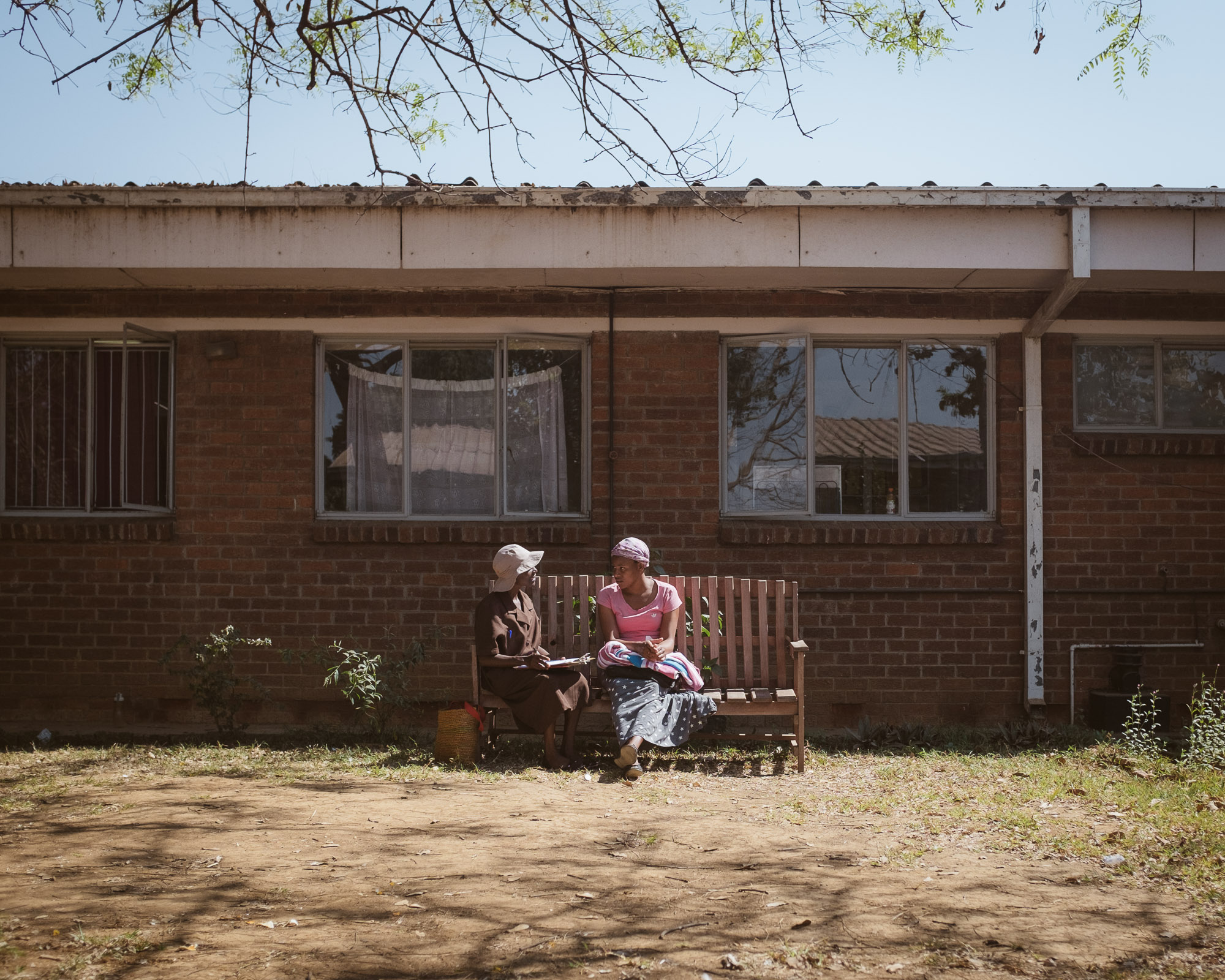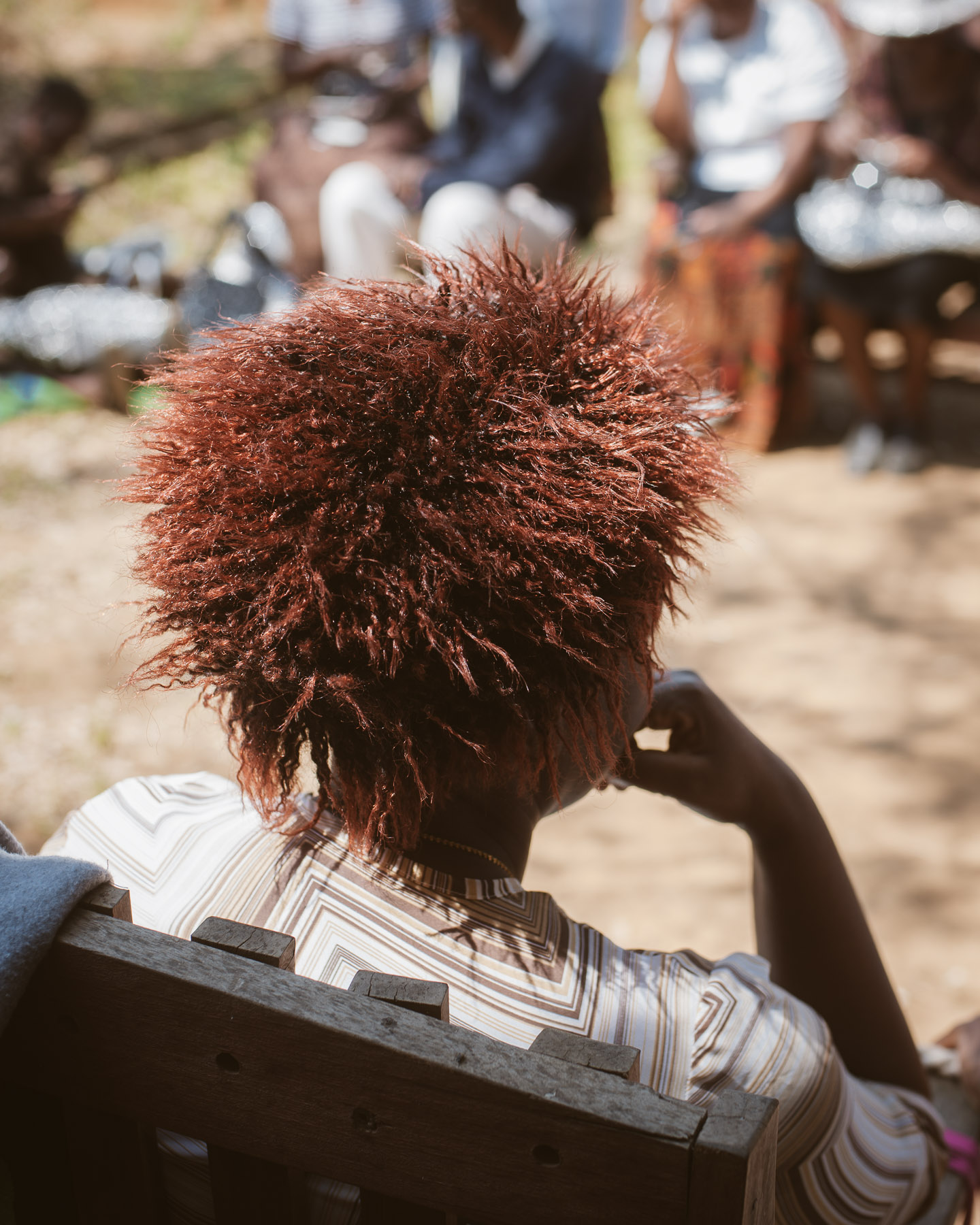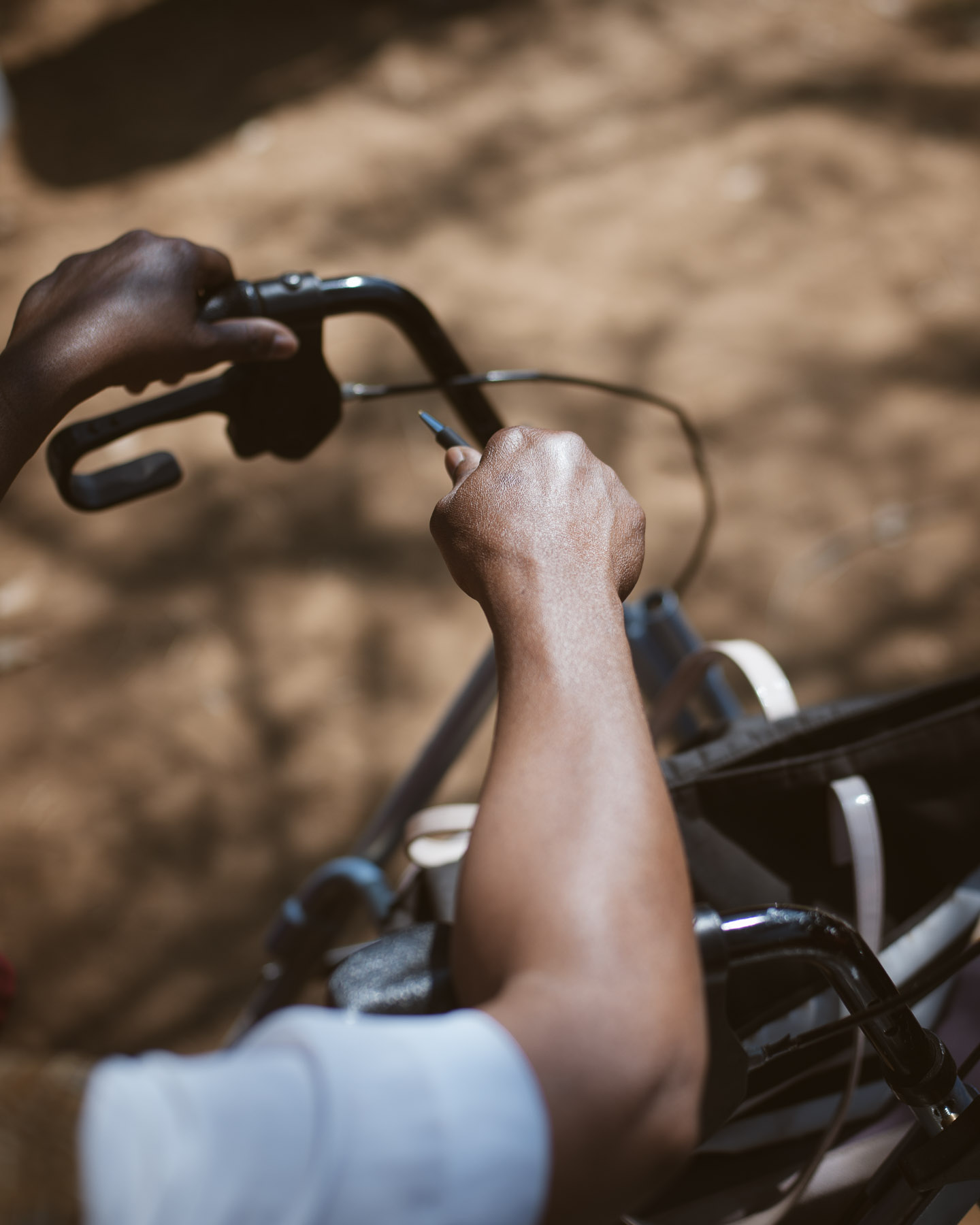
Lay health worker Violet Dune during a therapy dialogue with a young mother at Budiriro Polyclinic in the southwestern area of Harare
The Friendship Bench
Post-Mugabe Zimbabwe is witnessing the mental scars caused by years of deprivation and struggle. With the new president Emmerson Mnangagwa in power, the dictator is gone – but the machinery of repression is said to be still alive. And in the country of over 16 million there are only 12 psychiatrists practising.
The Friendship Bench project is an evidence-based intervention and therapy developed in Zimbabwe to bridge this mental health treatment gap. Its mission is to enhance mental well-being and improve quality of life through the use of problem solving therapy delivered by trained lay woman health workers, most of them experienced grandmothers. It focuses on people who are suffering from post-traumatic stress disorder, anxiety and depression.
In the local Shona language there is a word for the underlying practice of helping each other: ›Kubatana‹. It means unity, the state of being one; oneness.
The programme helped over 30,000 people there. The method has been empirically vetted and has been expanded to countries beyond, including the US.
Harare, Zimbabwe, 2018
Text by Andrea Jeska

Ewenia, beneficiary, lost her brother, lost her job, after divorcing her kids live with her ex’s parents; at a moment in her live she just wanted to die, but then ›here in the project I found new mothers, new sisters, new brothers and new fathers‹, she sais, ›now I can put some mascara and feel myself again, be part of the world again‹.
